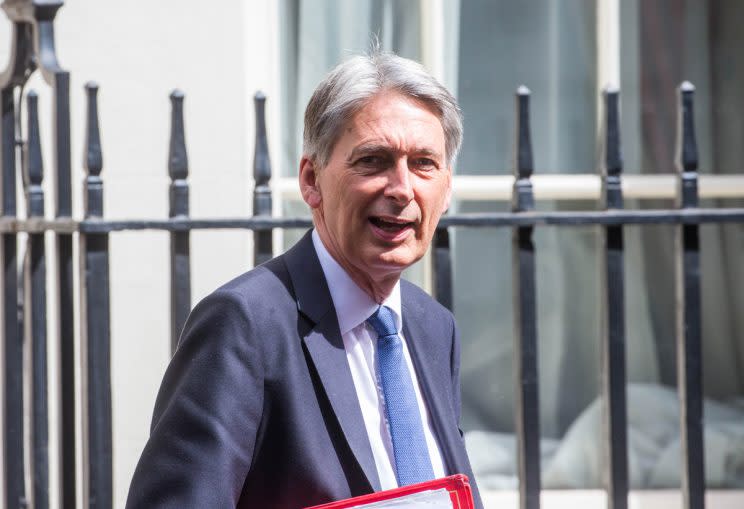UK may not be able to strike trade deals until after Brexit transition

The relationship between Britain and the European Union will continue in a similar fashion to now after Brexit, as a transitional period of up to three years begins, Philip Hammond has confirmed.
The chancellor admitted that Britain may not to be able to negotiate new trade deals during this period, when the government hopes to have access to, but not be a part of, the single market.
The comments come after it was reported that Hammond told business leaders he wants to negotiate a simple “off-the-shelf” transition deal with Brussels.
Hammond told the Today programme on BBC Radio 4 that the remarks had been taken from a “round-table” discussion with business leaders to “get their views and find out the challenges they face”.
During the interview this morning, he confirmed the report by saying Britain would be looking to manage Brexit in a way that “allows British people and British businesses to get on with their lives.”
“We know that on the March 29, 2019, we are going to leave the European Union and on that day, we are going to leave the Customs Unions and the Single Market .
“The question is what happens next. [British people and businesses] do not want to find massive disruption, a cliff-edge effect the next day,” he said.
Hammond added that this period would be a gradual move from now to the “long-term new relationship with the EU”, which is yet to be determined.
MOST POPULAR ON YAHOO UK:
Inside the world’s most expensive RV, which costs £2.3m and is seriously luxurious
Grenfell Tower covered in protective wrapping to shield ‘open coffin’ from view
Cash-strapped Brits ‘having to choose between food and basic personal hygiene’
Councils may REMOVE speed bumps under government plans to tackle air pollution
Anti-Semitic incidents in Britain hit an all-time high
“We are talking about moving from a known state today, to a future state, the detail of which we don’t know, because we haven’t negotiated it,” he said.
Yesterday, Amber Rudd said that EU nationals will still be able to come to the UK during this period, but would have to go through a “registration and documentation” process
The home secretary also reassured businesses that there will be “no cliff-edge”, after Brandon Lewis, her junior minister, said free movement would officially end in 2019.
Hammond said that although free movement as a “concept” would end, and Britain would leave the Single Market and Customs Union, “many things things [on day one] will look similar, because that’s the starting point.”
"It may be" that UK is unable to strike trade deals with other countries during transitional period – Chancellor @BBCr4today
— norman smith (@BBCNormanS) July 28, 2017
Seems clear UK leaves EU in March 2019 in name only , pending further three year transition period.
— norman smith (@BBCNormanS) July 28, 2017
He added: “I would hope we’ll be able to agree a transition that means, in the immediate aftermath of leaving the European Union, goods will be able flow across the border between the UK and the EU in much the same way as they do now, as it is our aspiration that we will be able to continue trading that way with the EU, in what the Prime Minister has described as a ‘near as possible frictionless border'”
Hammond implied the the transition period would last between one and three years, concluding before the next General Election in 2022.
Admitting uncertainty as to whether or not trade deals could be struck, he said: “We recognise it will take some time to negotiate trade deals with other countries. During a transition period where we would hope to have continued access to the European market, it may be that we don’t bring those new agreements into force.”

 Yahoo News
Yahoo News 

